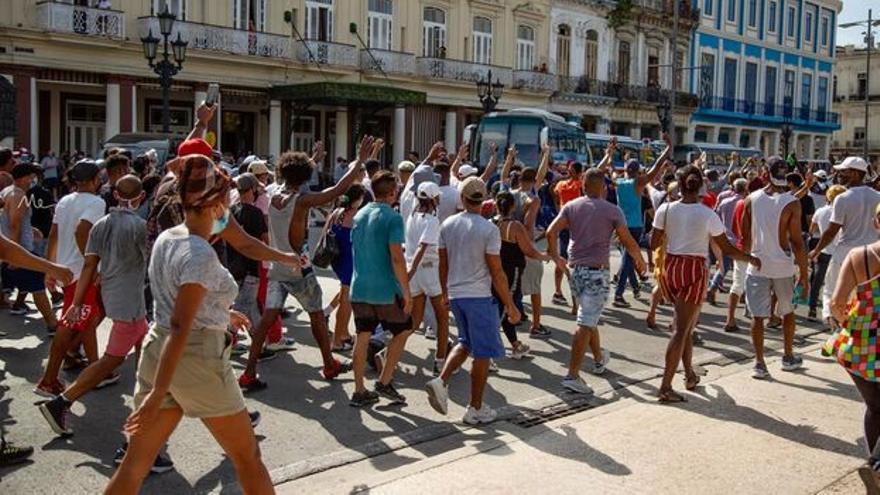
![]() EFE (via 14ymedio), Havana, 30 March 2022 — The opposition group Council for the Democratic Transition in Cuba (CTDC) presented a proposal this Tuesday for an amnesty law that would favor both those detained for the July 11 (11J) protests and Cuban public officials and officials.
EFE (via 14ymedio), Havana, 30 March 2022 — The opposition group Council for the Democratic Transition in Cuba (CTDC) presented a proposal this Tuesday for an amnesty law that would favor both those detained for the July 11 (11J) protests and Cuban public officials and officials.
The organization disseminated its proposal with the hope that the National Assembly would take it on as a popular legislative initiative — something contemplated in the 2019 Constitution — and approve it.
Neither the Cuban Legislature nor the official media have commented on the matter so far. In the exile and the opposition, the initiative has sparked controversy.
The Amnesty and Decriminalization of Dissent in Cuba Bill, provided to the media by the CTDC, seeks a “general and full amnesty” for anyone investigated or accused of counterrevolutionary activity, against State Security or the socialist system.
The proposal expressly refers to the anti-government protests of July 11, but calls for this measure of grace for all those prosecuted as “counterrevolutionaries” since 1959.
It also offers amnesty to “authorities, officials and law enforcement agents” who participated in the persecution of activities classified as counterrevolutionary, provided that they had not committed “crimes against humanity or serious violations of human rights.”
Officials and public officials and those of the Communist Party of Cuba who cannot be charged with crimes against humanity or human rights violations would also be covered.
The objective of the CTDC, according to the initial arguments of its proposal, is that this law be “a first step towards the national and political reconciliation of all Cubans.”
The proposal differs substantially from the one released last Friday on Telegram by the jurist Sergio Osmín Fernández on behalf of the Amnesty platform in Cuba.
Osmín Fernández’s petition calls for amnesty for the July 11 demonstrators and for all those imprisoned for “exercising the fundamental freedoms of human beings in opposition to totalitarianism” or for political activities since 1959.
“This law does not grant amnesty” to those who “perpetrated human rights violations and inflicted serious damages,” says article 2.2 of this proposal.
In addition, Osmín’s argument, where he speaks of “repression” and “totalitarian regime,” condemns the fact that the president of Cuba, Miguel Díaz-Canel, gave the “combat order” on television on July 11 to confront the protests.
The two initiatives have sparked debate between dissidents and opponents, focused on the differences between the two proposals and their repercussions.
____________
COLLABORATE WITH OUR WORK: The 14ymedio team is committed to practicing serious journalism that reflects Cuba’s reality in all its depth. Thank you for joining us on this long journey. We invite you to continue supporting us by becoming a member of 14ymedio now. Together we can continue transforming journalism in Cuba.
